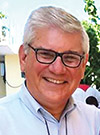What does it mean to be a brother?
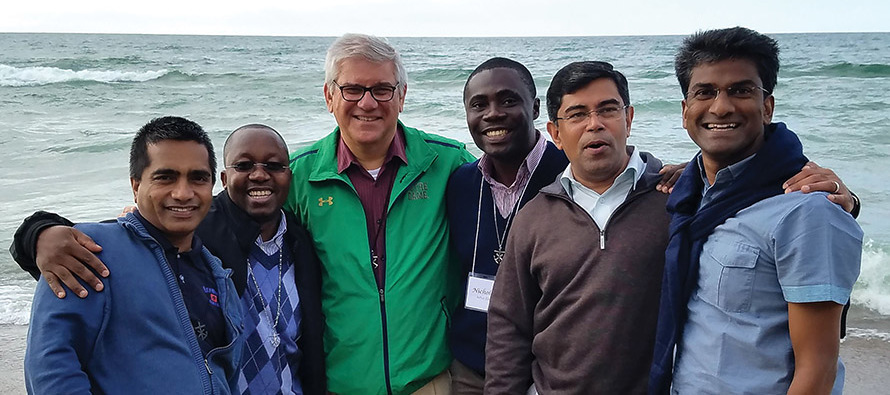
Brother Paul Bednarczyk, C.S.C. (center in green jacket) with other Holy Cross leaders at Lake Michigan. (Photo courtesy of Brother Paul Bednarczyk, C.S.C.)
WHY BE A BROTHER? Better yet, what is a brother? People often ask me these questions, and in attempting to answer them I have discovered that misconceptions about religious brotherhood abound: “A brother is halfway to being a priest . . . brotherhood is an alternative for those unable to handle the studies for priesthood . . . brothers are male nuns . . . .” And the list goes on.
Others find it easier to define a brother by what we’re not, as opposed to who and what we are. No wonder some say the brother’s vocation is one of the most misunderstood in the church!
Traditionally, most people have associated religious brothers with education, as either teachers or administrators of Catholic schools. Although many brothers’ communities maintain their commitment to Catholic education, we’re not just in the classroom anymore. You can find brothers on city streets ministering to the homeless as social workers, in hospitals as healthcare professionals, in parishes as pastoral associates, and around the world as missionaries.
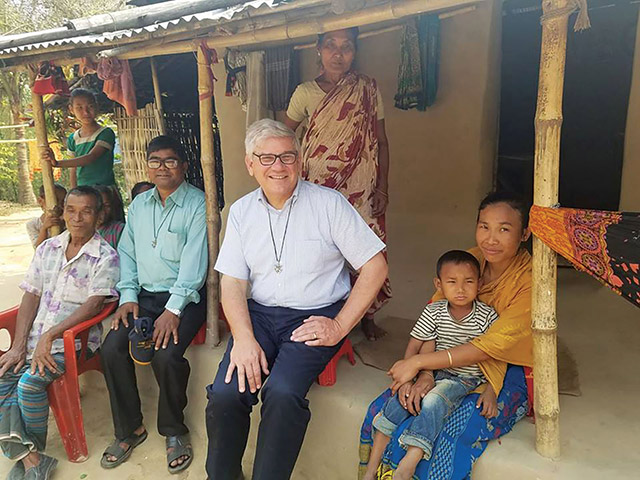
Because many dedicated laypersons also perform these same good works, it is not possible to define ourselves solely by our ministries. I prefer to look at the unique life of the religious brother in its completeness and the gift it is to the church and the People of God.
Equal footing
Simply put, what gives our vocation both meaning and identity is our life as consecrated religious. We are laymen who publicly consecrate ourselves to God and ministry within the church through our vows of poverty, chastity, and obedience. We live in community for mutual support and companionship, to live out our shared Catholic faith and the shared heritage of our religious congregations, and to further our mission in the church. Our vocation is neither superior nor inferior to marriage, priesthood, or the single life—it’s just another way of living out our baptismal call.
Although the face of brotherhood, like that of the world and the church, has changed, the heart of our vocation still remains the same. We yearn to deepen our relationship with God, to serve those in need by giving of ourselves freely and totally as Jesus did, and to share our lives and faith with each other in community.
To better understand the brother’s vocation, look at the word itself. Brother, by virtue of its definition, connotes relationship. Within the family unit, one cannot be both an only child and a biological brother to someone. Likewise, in religious life, we brothers do not stand alone. We stand with others who share equally in our membership by virtue of our vows of poverty, celibacy, and obedience.
As brothers within a family, we relate to people in a fraternal rather than a paternal way. We meet them eye to eye, at their level. It is how we are with the people with whom we live, our friends outside the community, our lay colleagues, and those to whom we minister. In my experience, even when brothers hold positions of authority, they lead with a sense of collaboration, equality, and mutuality. Let me illustrate this attitude of fraternity with an example from my own life.
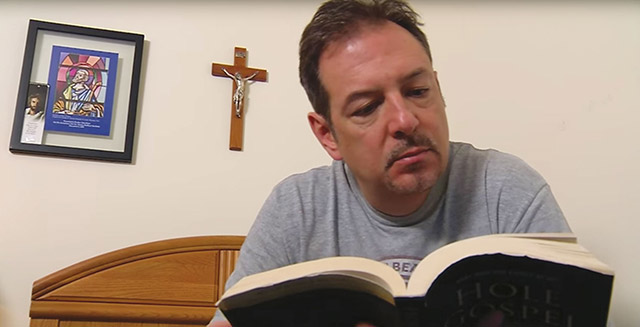
An unusual introduction
Several years ago, I had the pleasure of visiting two former students who were boarders at a high school staffed by my community. I was the assistant headmaster and the director of the resident program, so I had lived with these young men for two years as their resident prefect. They were now attending college and invited me to their apartment for a pasta supper so I could meet their roommates and their girlfriends.
Keep in mind that for years it was customary for students at our school to address us brothers as “Bro.” Although it took some getting used to, I eventually appreciated the term for its affection rather than its flippancy. So when I walked into the living room on the evening of our get-together, my former student simply said to his friends, “Well, everybody! Here’s our Bro!” For him my position and title in school were apparently unimportant. The important thing was that I was his “Bro”—and that suited me just fine.
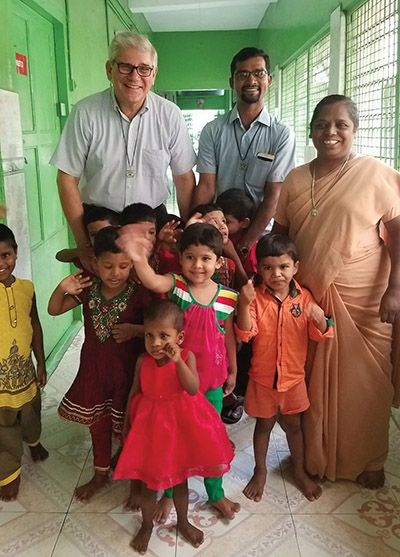
On my way home that night, I began to think about my unusual introduction. I felt appreciated and affirmed for who I really was. My role as administrator or prefect was secondary—but to these young men, I was a brother first. I was their brother.
All of us called to this life show that it is possible to interact with others in a non-superior manner while maintaining integrity as ministers. This is part of the gift religious brothers bring to the church, a gift others recognize in our hospitality, our institutions, and our celebrations.
Community at the center
The fraternal nature of brotherhood makes religious community integral to our vocation. By publicly professing our vows in community, we recognize our sinful nature and admit our dependence upon one another to help us live our vows faithfully. Since we forgo marriage and a family, we look to one another for support, challenge, and encouragement. Taking our example from the early apostles, we pool our resources—both finances and personal talents—for the common good of the community and for service to others.
We may be individuals in our character, opinions, and personality, but we also know that we are public representatives of our community and our church. We do not operate as independent agents in the church.
Likewise, we commit ourselves to the common mission of our community. Whether one works as the head of a social-service agency, a cook in a soup kitchen, a principal of a school, or a parish director of religious education, the prestige of one’s individual ministry does not matter. We all share an equal responsibility for carrying out the common mission of our religious congregation.
The values we esteem are far from those promoted by our secular culture. Whereas individualism, personal advancement, and privilege are virtues in the corporate world, we choose a life that encourages interdependence and shows indifference to status. Whereas American culture glorifies sex, money, and power, we choose to live together celibately, poorly, and obediently.
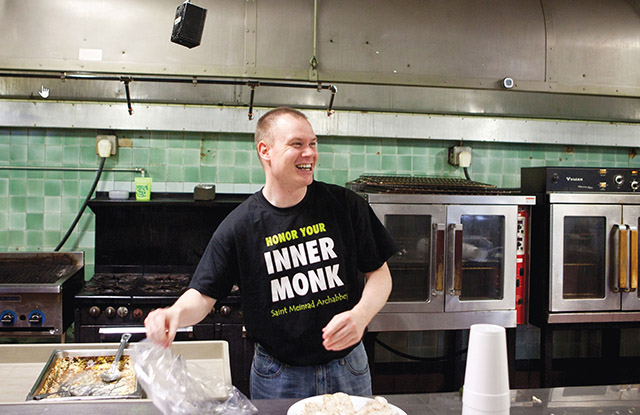
No strangers to struggle
Our high ideals, however, do not shield us from life’s struggles and pain. We need only to look at the life of Jesus Christ: Before his glorious Resurrection, Christ had to endure his Passion and death. Given the nature of human imperfection, no matter what life choice we make, we will encounter our own Calvary. Suffering is part of life, but as Christians, we need to discover how suffering can become a gift for ourselves and others.
As sustaining as community life can be, living with men of various ages, theologies, and personalities can be a lesson in patient endurance. Brothers have to be willing to work hard, be adaptable, and be able to cope with frustration. We try to admit our weaknesses and embrace our trials, believing in Christ’s redemptive powers. Thankfully, we do this not alone, but with others in community.
Others before us have tackled the challenge of living as brothers. Religious brotherhood has long had a special place in the history of the church. From the disciples of Saint Francis of Assisi to those of John Baptist de La Salle, Basil Moreau, Edmund Rice, and John of God, our predecessors went forth in groups of two or three. They boldly responded to the unmet needs of our world through evangelization, education, and healthcare.
Most often, these early brothers were unassuming men in both their ministries and their lives, sometimes so unassuming that people failed to understand exactly who they were. Many similar heroes who call themselves “brother” exist today, being with all people in their fraternal solidarity, love, and service.
Who knows? Maybe the brother’s vocation is not so much a misunderstood church vocation; maybe it’s simply one of the church’s best-kept secrets.
A version of this article appeared in VISION 2007. Related article: VocationNetwork.org, “Brothers: Keepers of the faith.”
Tags
Related
- A call to let go: Profile of Brother Christopher Campos Erran, O.S.C.
- God had a plan for me
- He blends new tech and old prayer: Profile of Brother Joseph Anoop, F.S.P.
- From physics lab to friary—and back again
- Better together: Profile of Brother David Relstab, O.S.A.
- The secret’s out: Brotherhood is powerful
- Brothers win the race: Profile of Brother Rafael Vargas, S.D.B.
- God called me to be a brother
- Modern “prodigal son” meets the brothers: Profile of Brother Ray Morris, B.H.
- Brotherhood is right for me Read More
Most Viewed
- Find your spirituality type quiz
- Questions and answers about religious vocations
- Celibacy quiz: Could I be a nun? Could I be a brother? Could I be a priest?
- Resources for older discerners or those with physical and developmental differences
- About Vocation Network and VISION Guide


